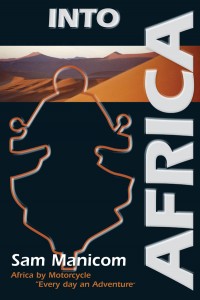Into Africa – Excerpts
How To Order
In the UK? Click here to order a signed copy direct from Sam.
After following them to the police station, the bike, my keys, carnet, license, passport and money were all confiscated. I wondered if I’d ever see any of them again. The booking-in room was a mass of yelling, arguing people and to top it all after just moments of being in the chaos, a badly beaten up man was thrown to the floor inside the room. His ears and nose had blood pouring from them and he looked no more than semi-conscious. They thrust me into a cell, and it was like being shoved onto the set of movie.
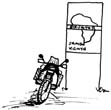 The concrete cell reeked of urine and a bucket in the corner stunk of faeces. The room was lit only by a small barred window that was set high into the wall. A single dust filled shaft of light cut into the dank darkness. As my eyes got used to the gloom I realised that there was a group of men already there; all of their eyes were on me. The hair on the back of my neck moved under the collar of my leather jacket; trying to look taller than my six one, I leant against the wall and stared back. I was scared again, but had the feeling that if I didn’t look tough there’d be trouble.
The concrete cell reeked of urine and a bucket in the corner stunk of faeces. The room was lit only by a small barred window that was set high into the wall. A single dust filled shaft of light cut into the dank darkness. As my eyes got used to the gloom I realised that there was a group of men already there; all of their eyes were on me. The hair on the back of my neck moved under the collar of my leather jacket; trying to look taller than my six one, I leant against the wall and stared back. I was scared again, but had the feeling that if I didn’t look tough there’d be trouble.
Almost everywhere on the trip so far there had been a sort of guarded respect towards me. I’d never been sure if it was the colour of my skin, my comparative wealth or what I was doing that engendered this respect, but there wasn’t a trace of it now. Time passed in slow motion and my mouth went dry. I couldn’t stop trembling and all I wanted to do was sit down. Then, the largest man opened his flies and …. With a touch of the bizarre, as he took his first step towards me the shaft of light from the window hit him and made him centre stage. There was no mistaking what was in this guy’s mind…
 Safu drove a shiny black vintage Cadillac, which he proudly told us he’d bought from Haile Sellassie’s estate when the old Emperor had died. A row of bullet holes decorated its side. Apparently he’d collected these on his last attempt to make it up the road that we’d just ridden down! He’d been stuck at the border for days. Leaning down towards us with a pleasantly theatrical manner he said, ‘A bus this very day was stopped and robbed. Its occupants were raped, mutilated and then killed.’ His voice swelled with drama. ‘Local people are on the rampage, it’s difficult to stop them, the new government is out of control in the south so the people are getting rich and married.’
Safu drove a shiny black vintage Cadillac, which he proudly told us he’d bought from Haile Sellassie’s estate when the old Emperor had died. A row of bullet holes decorated its side. Apparently he’d collected these on his last attempt to make it up the road that we’d just ridden down! He’d been stuck at the border for days. Leaning down towards us with a pleasantly theatrical manner he said, ‘A bus this very day was stopped and robbed. Its occupants were raped, mutilated and then killed.’ His voice swelled with drama. ‘Local people are on the rampage, it’s difficult to stop them, the new government is out of control in the south so the people are getting rich and married.’
This left me none the wiser. But Safu Baba explained; one of the major local tribes had a bloodthirsty marriage rite. To earn the right to get married, a young man must present proof of his manhood. Traditionally, this was done by killing a man from a neighbouring tribe and then presenting his victims genitals to the potential bride. ‘With the loss of control in the south there are a lot of marriages going on’, he said. ‘And they don’t care what colour the marriage gift is either.’ With this comment he pointedly grinned at Mike and me…
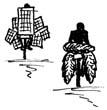 Marsabit was our first taste of a sub Saharan old English colonial town. The buildings were either concrete or wood. The wooden houses had verandas and flower gardens, the concrete looked more official with parking spaces and an occasional flag. The poorer locals lived in a collection of shanties on the edge of town, or in run-down, paint-peeling houses none of which, for some reason, seemed to stand up straight.
Marsabit was our first taste of a sub Saharan old English colonial town. The buildings were either concrete or wood. The wooden houses had verandas and flower gardens, the concrete looked more official with parking spaces and an occasional flag. The poorer locals lived in a collection of shanties on the edge of town, or in run-down, paint-peeling houses none of which, for some reason, seemed to stand up straight.
In the cheerful bustling market we found all sorts of greens, roots and fruits. Beside them hung hunks of meat, rolls of barbed wire, and tools with bright ‘Made in China’ stickers on them. Beat up trucks, Land Rovers and ‘sit up and beg’ black bicycles worked their way patiently through the brightly coloured throng. Squawking chickens, bleating goats and the loud calls of vendors competed with scents of cattle dung, diesel fumes and stagnant drainage ditches to assault our senses…
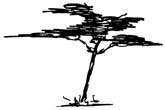 The hills run for roughly sixty or seventy kilometers, forming the western side of the Elgeyo Escarpment. The roads are mostly dirt which meant that many of them didn’t show up on my map at all. I rode slowly through this beautiful area and didn’t see another white skin anywhere. In the middle of the day I sat in the cool shade of an acacia tree. It was a well-earned rest and the perfect spot to enjoy the view. Sweat had cling-filmed my shirt to my body and my leather jacket was ringed with salt stains again. The foam around my goggles had a salty metallic scent to them and dust had gathered in muddy smears along the lower rims where perspiration would always collect.
The hills run for roughly sixty or seventy kilometers, forming the western side of the Elgeyo Escarpment. The roads are mostly dirt which meant that many of them didn’t show up on my map at all. I rode slowly through this beautiful area and didn’t see another white skin anywhere. In the middle of the day I sat in the cool shade of an acacia tree. It was a well-earned rest and the perfect spot to enjoy the view. Sweat had cling-filmed my shirt to my body and my leather jacket was ringed with salt stains again. The foam around my goggles had a salty metallic scent to them and dust had gathered in muddy smears along the lower rims where perspiration would always collect.
My eyes were drawn out over the shimmering brown and yellow plain towards the cool greens of the distant mountains. The sense of phenomenal space was quite awesome and it was only after all these months in Africa that I was really beginning to feel inspired by them. In the first months I’d been too busy just coping with my immediate environment to really take stock of just how big the land is. I felt that I was in a place where I could yell at the top of my voice for as long as I wanted, and not a soul would hear…
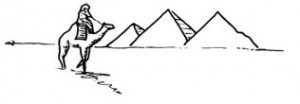 The books I’d read about desert riding offered two pieces of advice for dealing with washboard. One, go very slowly and just accept that it will be a long, uncomfortable, ball battering, teeth chattering ride. Two, open the throttle until you reach a speed where you skip across the top of the ridges. The latter option the books said would be smoother, faster and cause less damage to the bike, as the vibrations would be smaller. Put like that I had no choice and opened the throttle wider. Yet again, I wasn’t completely in control of my three hundred and fifty kilo’s.
The books I’d read about desert riding offered two pieces of advice for dealing with washboard. One, go very slowly and just accept that it will be a long, uncomfortable, ball battering, teeth chattering ride. Two, open the throttle until you reach a speed where you skip across the top of the ridges. The latter option the books said would be smoother, faster and cause less damage to the bike, as the vibrations would be smaller. Put like that I had no choice and opened the throttle wider. Yet again, I wasn’t completely in control of my three hundred and fifty kilo’s.
Every instinct said that this was totally mad, but I hung on and kept the throttle open. The bike seemed to go where it wanted to, meandering me erratically from one side of the road to the other; I began to feel that I was just some sort of biking accessory…
You can order copies of Into Africa directly from us, as a download from Kindle and now also as an enhanced e-book from Apple i-Tunes. Copies are also available from mainstream bookshops.




